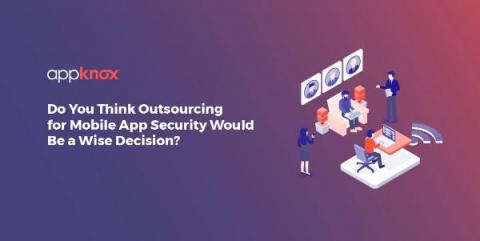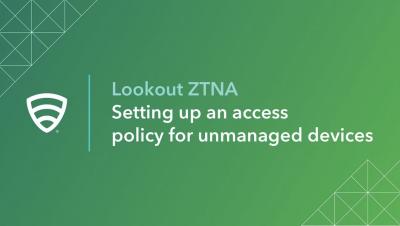Security | Threat Detection | Cyberattacks | DevSecOps | Compliance
Mobile
PGP Decryption Bypass in Flutter Application
During the assessment of one of the financial applications built upon the flutter framework, we came across that the application was using PGP encryption for encrypting the API requests. It is pretty common for financial applications to be implementing traffic encryption, with AES seen to be the preferred algorithm for encrypting traffic. There is plenty of research already available on decrypting AES encrypted traffic.
How to Protect Your Data When Ransomware Strikes
Ransomware is not a new attack vector. In fact, the first malware of its kind appeared more than 30 years ago and was distributed via 5.25-inch floppy disks. To pay the ransom, the victim had to mail money to a P.O. Box in Panama.
Lookout Helps a Large Construction Firm Protect Intellectual Property Shared Between Employees, Partners and Contractors
Large construction firms rely on a vast network of architects, engineers, project managers, contractors, and suppliers to collaborate on projects of all sizes and complexities. While the digitization of the construction industry has made it easier for these project teams to share information, it also expands the cyber-attack surface.
Multiple Domains on Mobile
Mobile penetration testing: Why You Need A Mobile Penetration Test | Cyphere
Do You Think Outsourcing for Mobile App Security Would Be a Wise Decision
For businesses who are looking to enhance profits and boost their global footprint, mobile app development and app security have become a top priority. With the smartphone industry still flourishing, it's evident that this trend won't be going away anytime soon, especially as market competition is increasing and new interactive technology becomes more prevalent. Mobile apps are expected to earn over $935 billion in revenue by 2023, according to Statista.
The 3G network shutdown impacts more than just phones
As you have probably heard, 3G is phasing out. On February 22, AT&T shut down its 3G network. T-Mobile Sprint will retire its 3G network next week on March 31, 2022. Verizon, the last of the pack, will retire 3G by the end of 2022. What does this mean for your business and your security? The obvious answer is that older phones should be replaced as soon as possible, but the 3G shutdown’s impact will reach beyond phones, and that reach may affect your organization’s security.










